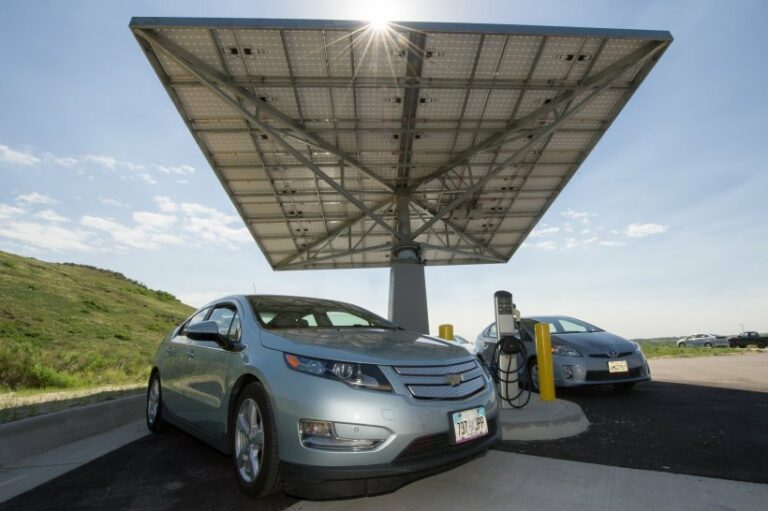Most Eco-Friendly Car Brands
Looking for the Most Eco-Friendly Car Brands? Look no further! In this article, we delve into the world of sustainable transportation to bring you the top environmentally conscious car manufacturers.
With the rising concerns about climate change and the need for cleaner modes of transportation, it’s no wonder that more and more car buyers are prioritizing eco-friendly options.
Whether you’re a conscious consumer or simply curious about the latest trends in the automotive industry, this article will help you navigate the landscape of the most eco-friendly car brands. Let’s dive in!
Most Eco-Friendly Car Brands
Sustainability and environmental consciousness have become integral aspects of our daily lives. As concerns about climate change and pollution continue to grow, more and more people are looking for eco-friendly alternatives in various industries, including the automotive sector. Car manufacturers have responded to this demand by developing innovative technologies and manufacturing practices that reduce carbon emissions, increase fuel efficiency, and minimize the environmental impact of their vehicles. In this article, we will explore some of the most eco-friendly car brands and their commitment to creating a greener future.
Tesla
Tesla is one of the most recognizable names when it comes to electric vehicles (EVs). The company’s mission to accelerate the transition to sustainable transportation has made it a pioneer in the industry. Tesla’s vehicles are 100% electric and produce zero tailpipe emissions, significantly reducing greenhouse gas emissions. With their sleek designs, impressive range, and unmatched performance, Tesla cars have gained popularity among eco-conscious consumers worldwide.
Tesla employs cutting-edge technology and advancements in battery technology to achieve its remarkable range. The company’s Supercharger network provides fast and convenient charging options for Tesla owners, making long-distance travel in an electric vehicle more viable. Additionally, Tesla’s commitment to renewable energy is evident through its solar energy products and energy storage solutions, further promoting sustainability.
Toyota
Toyota has long been a leader in the automotive industry, and its commitment to environmental sustainability is no exception. The company’s hybrid electric vehicles (HEVs) have gained widespread recognition for their fuel efficiency and reduced emissions. Toyota’s hybrid technology combines an internal combustion engine with an electric motor, resulting in lower fuel consumption and a more environmentally friendly driving experience.
One of Toyota’s most popular hybrid models is the Prius, which has become synonymous with eco-friendly driving. The Prius offers impressive fuel efficiency and a range of advanced features that enhance its overall eco-friendliness. Toyota has also expanded its hybrid lineup to include other models such as the Camry and RAV4, offering consumers a wider range of options when choosing an eco-friendly vehicle.
Nissan
Nissan is another prominent player in the eco-friendly car market, known for its electric vehicle, the Nissan Leaf. The Leaf was one of the first affordable mass-market electric cars and has since become one of the best-selling EVs globally. With its compact design, impressive range, and affordable price tag, the Leaf has helped accelerate the adoption of electric vehicles worldwide.
Nissan has also taken steps to support the growth of electric vehicle infrastructure. The company has partnered with various organizations to develop charging networks and promote public EV charging stations. By addressing the challenges of charging infrastructure, Nissan aims to make electric vehicle ownership more accessible and convenient.
BMW
BMW’s commitment to sustainability can be seen through its range of electric and plug-in hybrid vehicles. The company’s electric models, such as the BMW i3 and i8, offer zero-emission driving combined with luxurious features and performance. These vehicles utilize advanced materials and manufacturing techniques to reduce their environmental impact further.
In addition to fully electric vehicles, BMW offers plug-in hybrid models that combine the benefits of electric and combustion engines. The company’s plug-in hybrid lineup includes models like the 330e and X5 xDrive45e, which offer improved fuel efficiency and reduced emissions. BMW’s focus on sustainability extends beyond its vehicle lineup, with initiatives that promote renewable energy, energy efficiency, and recycling.
Hyundai
Hyundai has made significant strides in the development of eco-friendly vehicles, particularly with its hydrogen fuel cell technology. The Hyundai Nexo, a hydrogen fuel cell SUV, represents the company’s commitment to sustainable transportation. Fuel cell vehicles produce zero emissions, as they use hydrogen to generate electricity, with water being the only byproduct. Hyundai is actively working to expand the hydrogen fuel cell infrastructure to support the widespread adoption of this technology.
Furthermore, Hyundai offers a range of hybrid and plug-in hybrid models to cater to different consumer preferences. The Ioniq lineup consists of hybrid, plug-in hybrid, and fully electric variants, offering eco-friendly options for various driving needs. Hyundai’s eco-friendly efforts extend beyond its vehicle production, with initiatives focused on renewable energy and recycling.
Honda
Honda is dedicated to reducing its environmental impact and has developed a range of eco-friendly vehicles to achieve this goal. The Honda Insight, a hybrid sedan, embodies the company’s commitment to fuel efficiency and reduced emissions. With its sleek design and advanced features, the Insight offers a comfortable and environmentally conscious driving experience.
Additionally, Honda offers the Clarity lineup, which includes hybrid, plug-in hybrid, and hydrogen fuel cell variants. The Clarity models provide consumers with diverse options for eco-friendly transportation, catering to different driving habits and accessibility to charging infrastructure. Honda’s focus on innovation and sustainability also extends to its motorcycle division, with the development of electric motorcycles and scooters.
As the world continues to prioritize sustainability, car manufacturers have risen to the challenge by developing eco-friendly vehicles. Tesla, Toyota, Nissan, BMW, Hyundai, and Honda are among the leading brands spearheading this movement, offering a range of electric, hybrid, and fuel-cell vehicles. By prioritizing fuel efficiency, reducing emissions, and investing in renewable energy, these brands are shaping the future of transportation. As more consumers embrace eco-friendly cars, the automotive industry can make a significant impact in mitigating climate change and promoting a cleaner, greener future.
Remember, when choosing an eco-friendly car, consider factors such as range, charging infrastructure, and your own driving habits to find the best fit for your needs. With the advancements in technology and the increasing availability of charging networks, the transition to eco-friendly transportation is becoming more accessible and feasible for everyone.
*Disclaimer: The information provided in this article is based on extensive research and knowledge of the eco-friendly car market. However, it is recommended to consult with car manufacturers or authorized dealers for the most up-to-date and accurate information before making a purchasing decision.
Are Electric Cars Really More Environmentally Friendly?
Frequently Asked Questions
Which car brands are considered the most eco-friendly?
Several car brands are known for their commitment to producing eco-friendly vehicles. Some of the most notable ones include Toyota, Tesla, Nissan, BMW, and Hyundai. These brands have taken significant steps to reduce carbon emissions by developing electric, hybrid, and hydrogen-powered cars. They use sustainable materials and incorporate energy-efficient technologies to minimize environmental impact.
What makes Toyota an eco-friendly car brand?
Toyota has established itself as a leader in eco-friendly vehicles with its extensive range of hybrid cars, such as the Prius. These vehicles combine a traditional combustion engine with an electric motor, leading to reduced fuel consumption and lower emissions. Toyota has also invested in research and development to advance hydrogen fuel cell technology in their Mirai model, showcasing their dedication to sustainable mobility.
How is Tesla contributing to being environmentally friendly?
Tesla is renowned for its commitment to sustainable transportation. The company specializes in electric vehicles (EVs), striving to make them more accessible and practical. Tesla’s cars offer long-range capabilities, fast charging solutions, and advanced battery technology. By promoting electric mobility, Tesla aims to decrease reliance on fossil fuels and reduce global carbon emissions.
What eco-friendly initiatives does Nissan undertake in car manufacturing?
Nissan is dedicated to sustainability and has made significant efforts to minimize the environmental impact of its vehicles. The company has been a pioneer in electric vehicle technology with their Nissan Leaf, the world’s best-selling electric car. Nissan also emphasizes recycling and uses recycled materials in its vehicles, reducing the need for new resources. Furthermore, Nissan is involved in renewable energy projects and promotes environmental conservation.
How does BMW contribute to sustainability in the automotive industry?
BMW has adopted a holistic approach to sustainability, focusing on various aspects of vehicle production and operation. The company produces electric and plug-in hybrid models, such as the i3 and i8, which reduce emissions and dependence on fossil fuels. BMW also employs efficient manufacturing processes, uses renewable energy in its production facilities, and incorporates sustainable materials into its vehicles.
What eco-friendly technologies does Hyundai utilize in its cars?
Hyundai is committed to developing eco-friendly vehicles through various technologies. The brand offers hybrid, plug-in hybrid, and fully electric models, providing customers with a range of sustainable options. Hyundai has invested in fuel cell technology, producing the Hyundai Nexo, an electric vehicle powered by hydrogen. This innovative approach contributes to cleaner emissions and a greener future.
Final Thoughts
the most eco-friendly car brands are paving the way for a greener future. These brands prioritize sustainability and have made significant strides in reducing carbon emissions and promoting environmentally-friendly practices. By incorporating electric or hybrid technology, implementing recycled materials, and adopting renewable energy sources in their manufacturing processes, these brands are leading the charge towards a more sustainable transportation industry. With their commitment to innovation and a cleaner planet, the most eco-friendly car brands provide consumers with reliable and efficient vehicles that minimize environmental impact. Choose these brands to contribute to a greener tomorrow.






